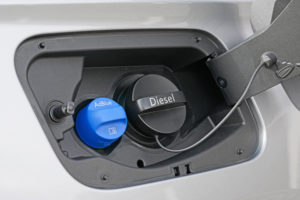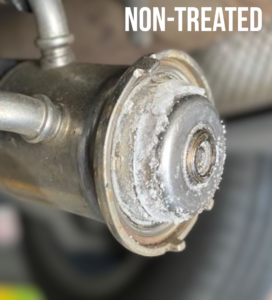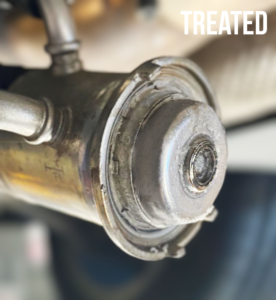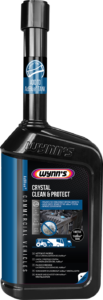Regulations and standards for vehicle emissions
A new standard for vehicle emissions was introduced in 2014. This new regulation limited the emissions of NOx to a maximum of 0,08 gr/km. Due to this, car manufacturers needed to install new exhaust control systems in modern vehicles. The most popular and efficient of them is the SCR (Selective Catalytic Reduction). SCR is a system formed by a catalyst, a tank, a pump and an injector for AdBlue®, in some cases it may include a dedicated control module unit.

How does the SCR system work?
As exhaust gases passes through the SCR cat, the system reads the gas temperature and NOx amount, so it calculates the exact quantity of AdBlue® to be injected into the system. This reacts with the NOx present in the exhaust gases and becomes into N₂ and water. To start with the catalytic conversion the SCR needs to be at a minimum of 200ºC.
Typical problems of the AdBlue® fluid
However, not all can be perfect. AdBlue® is a mixture of water and 33% of urea, so it shows us four problems:
- the fluid is very corrosive
- it freezes at -11ºC
- can form crystals when the temperature of operation is below 260ºC
- it also expires after 1 year of manufacture.
One of the major concerns of this system is that AdBlue® may crystalize at low temperatures. This will lead to a blockage in the SCR, injector or pump. This situation is likely to happen in all vehicles that mainly run in town at low speeds causing a high cost for their owners.

AdBlue® and crystallization problems
We can also see crystals forming on the AdBlue® tank, lines and pump. This crystallisation can cause damage and prevent the level sensor in the tank performing properly. When the vehicle is filled with AdBlue® it will not register the fill and report that the tank is empty stopping the system and the vehicle working. Many manufacturers adopt a system where all the components are part of the AdBlue® tank unit. In this instance, if a level sensor or pump fails then a replacement tank is required.


Solutions for crystallization and cleaning tips
Cleaning the fuel and oil system at regular intervals will maintain oil system cleanliness and efficiency, fuel injector spray patterns and operation. This in turn will maintain exhaust gas temperatures to aid the operation of the SCR catalyst and reduce system faults. In addition, using an additive in the AdBlue® system will reduce and prevent crystallisation and reduce component failure.
New in the Wynn’s range: Crystal Clean & Protect
Avoid costly repairs on AdBlue® components by preventing crystallization and keeping the SCR system clean. It prevents the formation of crystal deposits, avoids costly repairs to the AdBlue® system and improves SCR operation.
- Prevents the formation of crystal deposits
- Dissolve light crystallisation
- Avoids costly repairs to the AdBlue® system
- Improves SCR operation
- Eliminates breakdown & downtime



Leave A Comment